Delheim Wine Estate, renowned for its pioneering conservation efforts, is excited to announce their Fynbos Vineyard Pilot Project, funded by WWF South Africa. It integrates indigenous fynbos species with the vineyard operations, ensuring this unique and endangered fynbos biome not only flourishes alongside Delheim’s renowned wines, but also enables guests to engage with nature in an accessible, interactive way.
Situated in the heart of the Cape Floral Kingdom, Delheim has been protecting the extraordinary biodiversity that falls within this floristic region for generations. The Cape Floral Kingdom is a globally recognised biodiversity hotspot. It has the highest known concentration of plant species in the world, with nearly 70% of the species growing nowhere else on Earth!
Delheim’s commitment to preserving this extraordinary environment is evident in the diversity of flora that thrives here. Delheim is home to rare and endangered vegetation, such as Boland Granite Fynbos (including vibrant proteas, ericas, and restios); Clay Indigo, and Sambreeltjie; the vulnerable Grootsteekhaarbos; the near-threatened Bobbejaantie; the Molbossie; the Green Tree-pincushion and the Green Sugarbush protea.
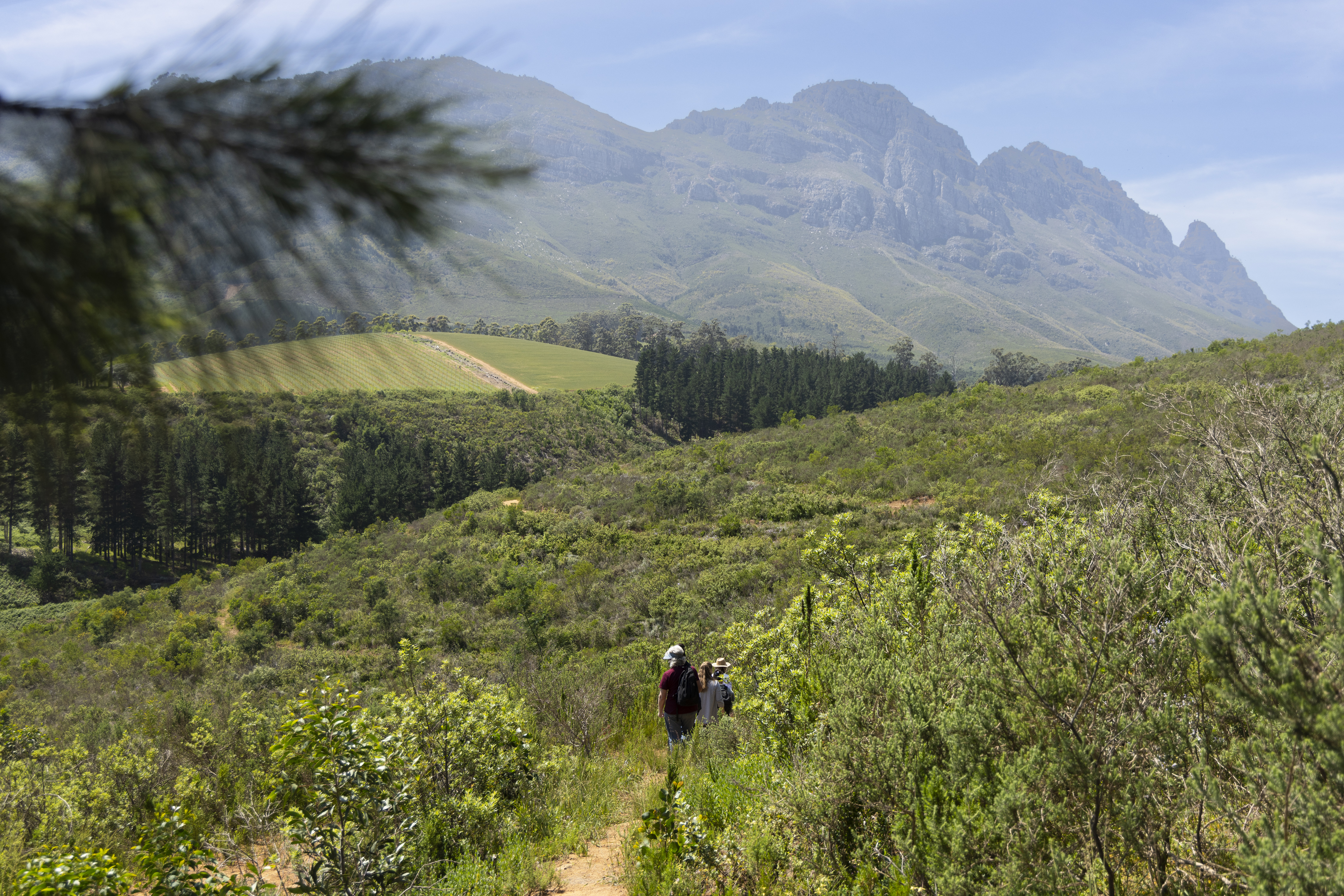
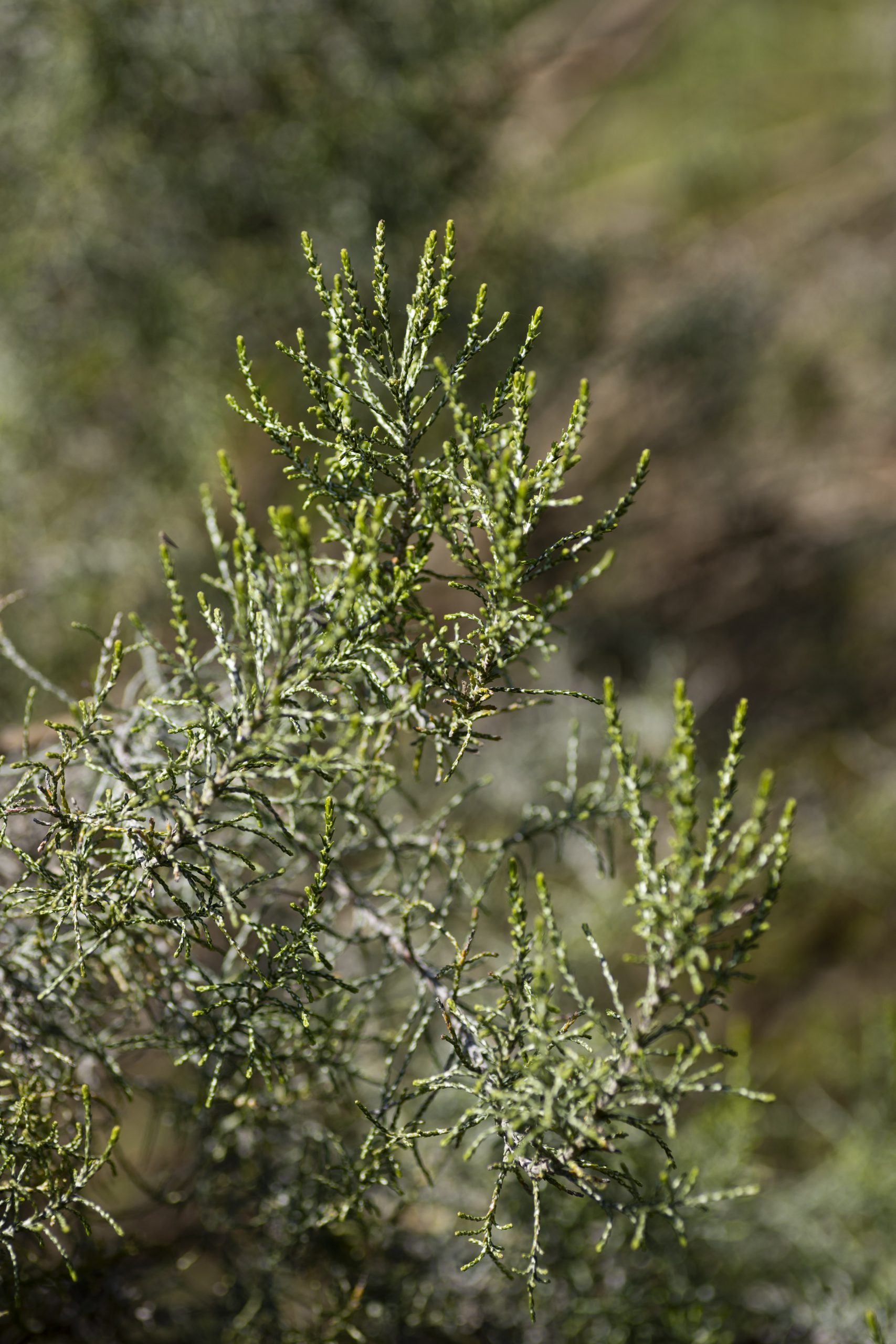
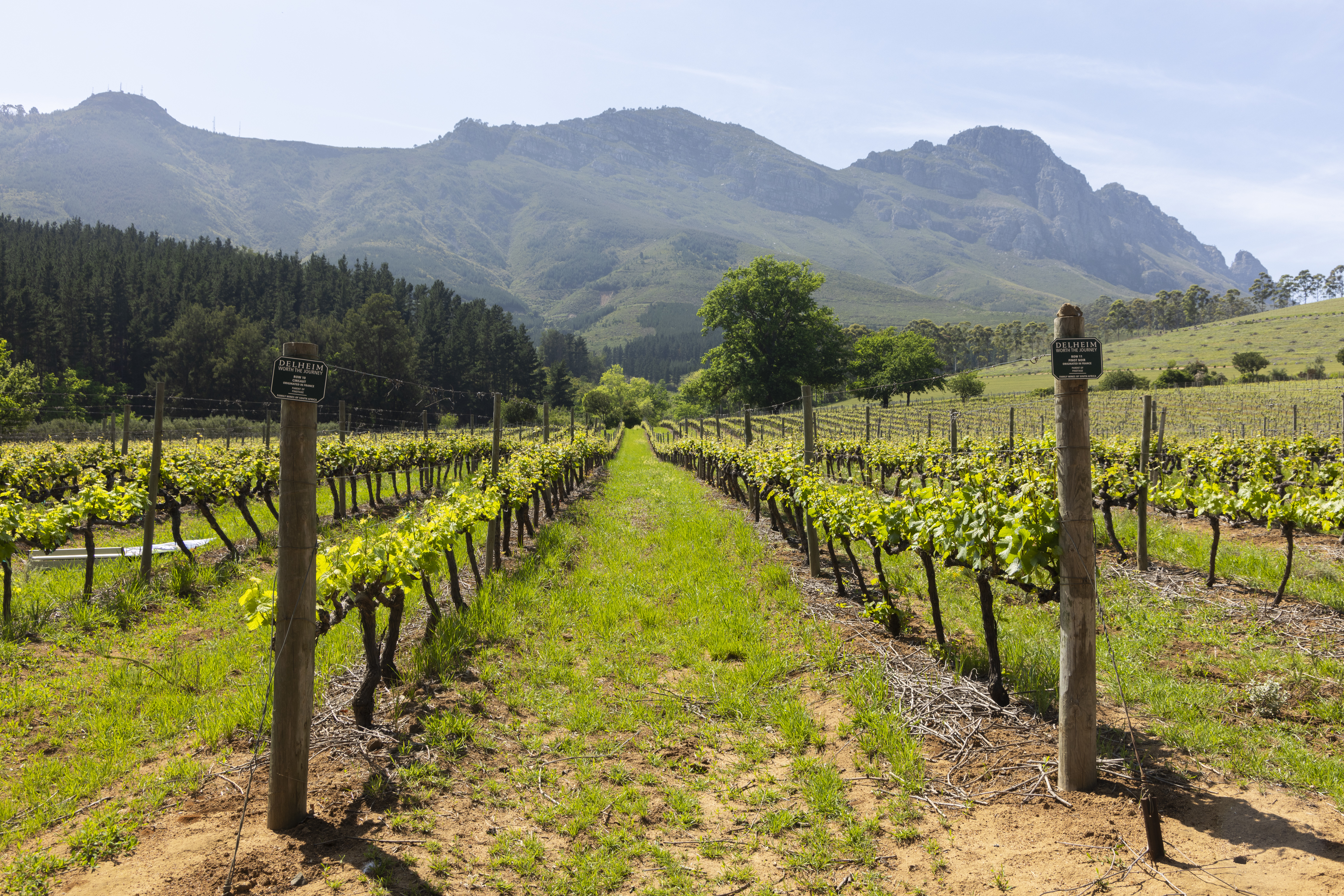
Along with fynbos, renosterveld is another highly threatened vegetation type in South Africa, and also at the centre of Delheim’s conservation efforts. With both under significant threat from agricultural expansion, the challenge lies in balancing farming and development with the preservation of this unique ecosystem.
Conserving Fynbos at Delheim
“Protecting these ecosystems is vital for maintaining biodiversity and ecological balance,” says Nora Thiel, from Delheim. “With only 5% of the original extent of renosterveld remaining intact today, our conservation work is more important than ever.”
Recognised as a WWF Conservation Champion and winner of the Best of Wine Tourism Great Wine Capitals of the World 2024 Conservation Pioneer, Delheim’s conservation work is inspiring. By implementing no-till farming, planting cover crops, and reducing water consumption through an innovative recycling system, Delheim ensures its practices are aligned with its conservation ethos.
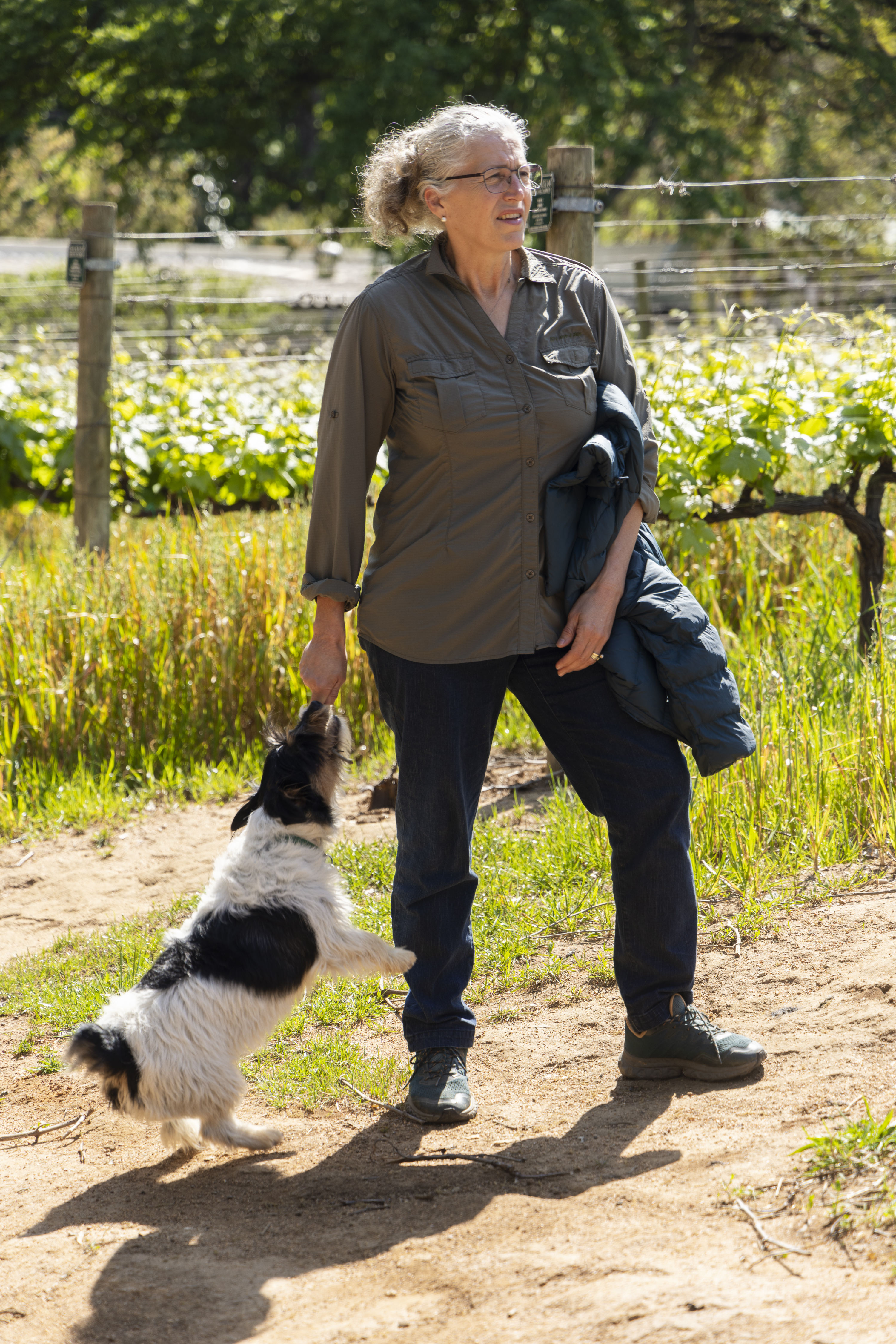
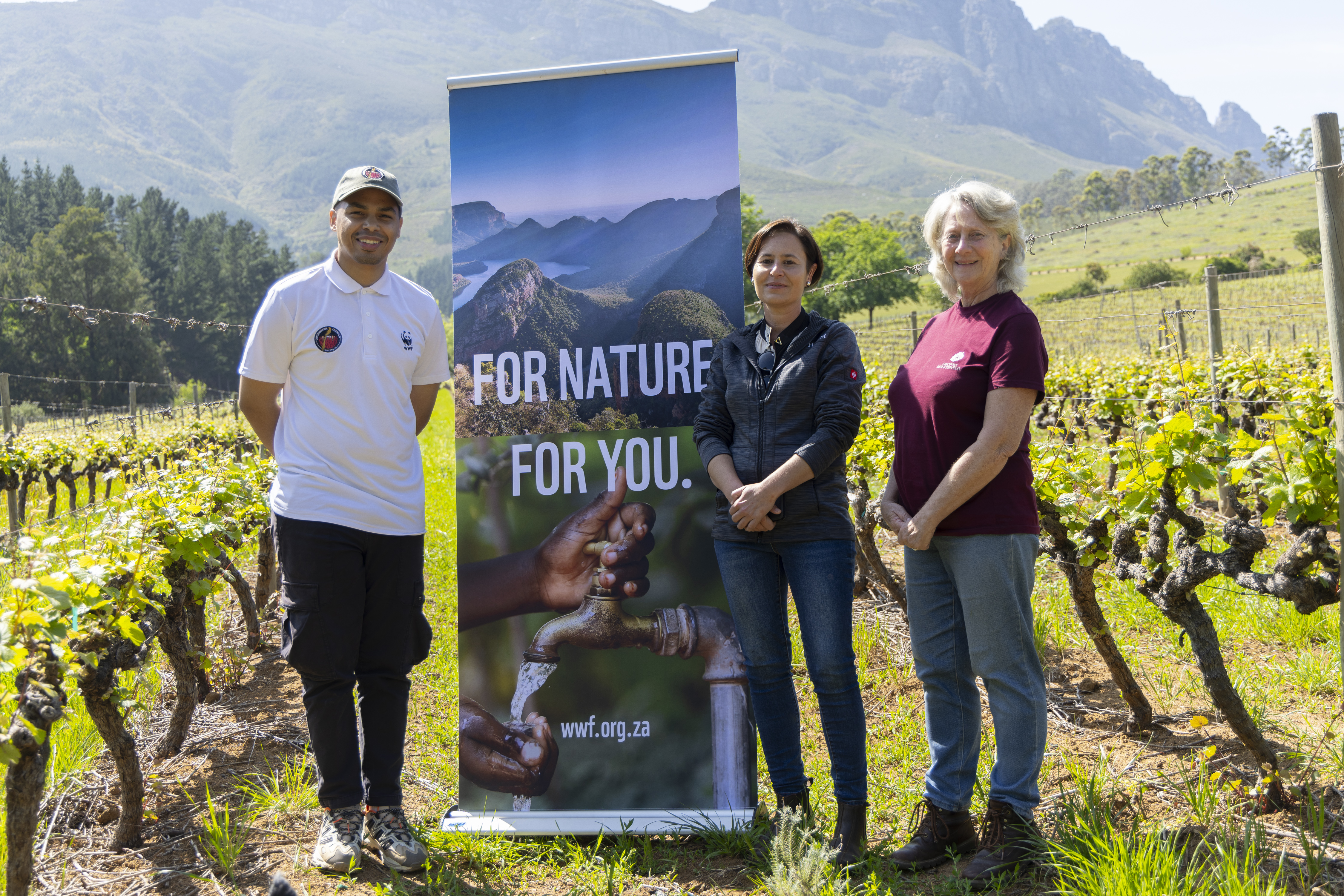
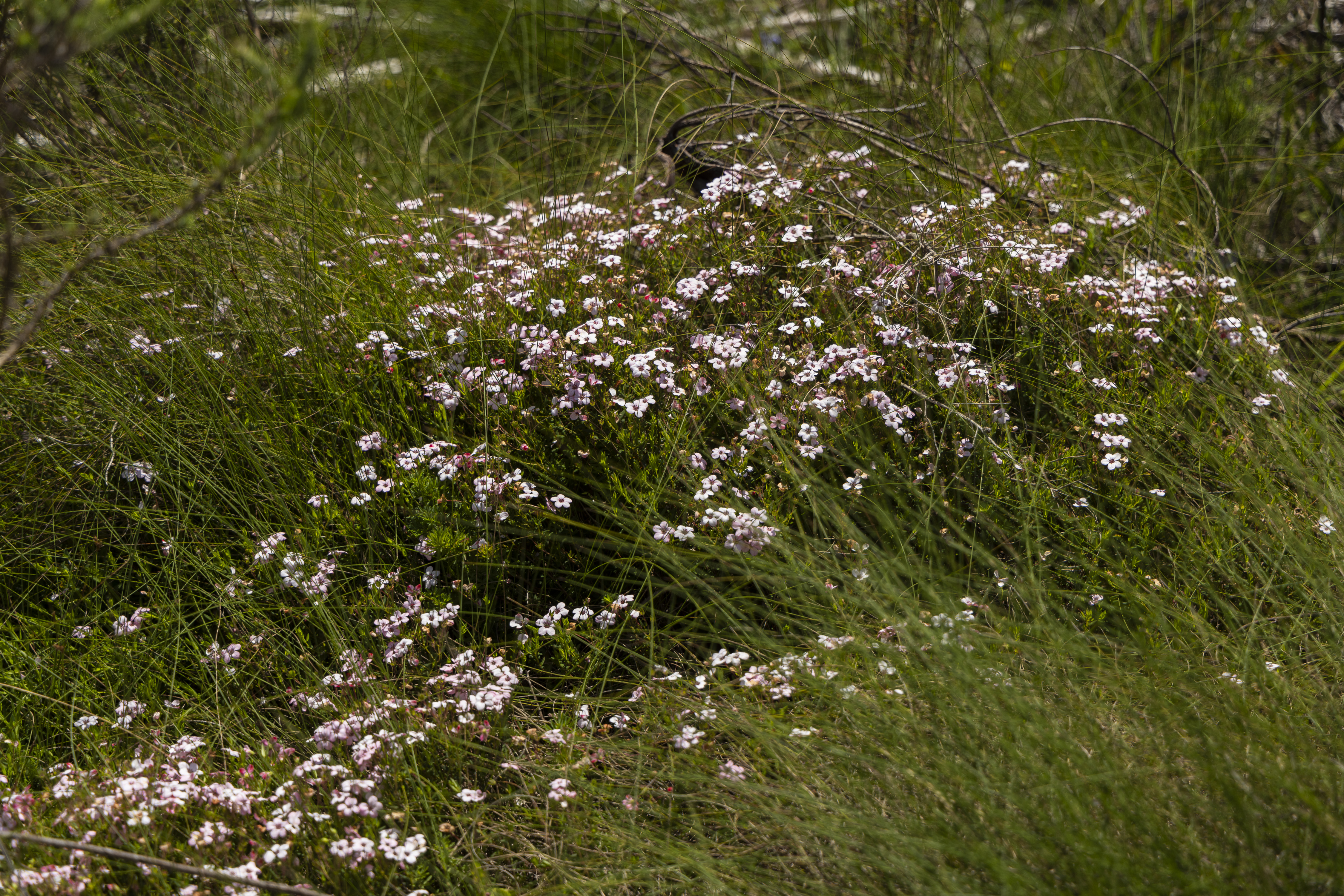
Delheim is also actively involved in alien vegetation clearing projects and the restoration of endangered renosterveld habitats. “We have seen promising results, including enhanced soil health and the return of indigenous vegetation like the Simonsberg Bietou (Osteospermum hispidum viridum), a plant species endemic to the Simonsberg,” says Thiel.
Collaborating with Discover Renosterveld, the farm continues to merge its sustainable farming practices with conservation goals. Its latest bold step in conserving South Africa’s unique biome is the Fynbos Vineyard Pilot Project.
Fynbos Vineyard Pilot Project
From a viticultural perspective, we believe that the more natural the vineyard environment, the healthier and more expressive the grapes,” says Corlia Erasmus, Farm Manager at Delheim, whose passion for biodiversity conservation inspired the launch of this project. “We have committed to establish 10% fynbos corridors between our vineyards each year to re-establish indigenous vegetation, conserve biodiversity, and sustain natural ecosystems.”
Delheim’s Fynbos Vineyard Pilot Project was made possible through funding from the WWF Conservation Champion Activation Fund. This grant supports WWF Conservation Champion projects focused on conservation, fynbos restoration, and climate mitigation. Delheim secured funding under the Fynbos Restoration category, enabling the launch of the Fynbos Vineyard project.
The project, in collaboration with Discover Renosterveld, involves planting indigenous fynbos species like Kooigoed (Helichrysum petiolare), Botterblom (Gazania pectinata) and Vygies (Erepsia anceps) within its Riesling vineyards, creating natural fynbos corridors that promote biodiversity and protect the soil from erosion and invasive species to enhance vineyard health.
“Integrating fynbos corridors between Delheim’s vineyards provides habitats for pollinators, birds, and beneficial predator insects while enhancing soil health with beneficial microbes to create healthier ecosystems,” explains Lynda Muller from Discover Renosterveld. “The fynbos planted in July is still establishing itself, but we expect it to flourish and do wonderfully well in their new surroundings. It is an exciting initiative that will benefit both biodiversity and the quality of the harvest.”
Bringing Fynbos to the Guests
Delheim’s Fynbos Vineyard Pilot Project is also an invitation for visitors to engage with nature in an accessible, interactive way, without venturing far.
“We want to share our unique, diverse and endangered fynbos with all visitors to Delheim. This initiative brings the fynbos experience to people, allowing guests and the public to engage with it firsthand,” says Thiel.
Delheim also hosts unique nature-inspired experiences throughout the year, such as their annual harvest festival; mushroom foraging; bird watching; and volunteer alien plant hacking every second Saturday of the month at sunrise.
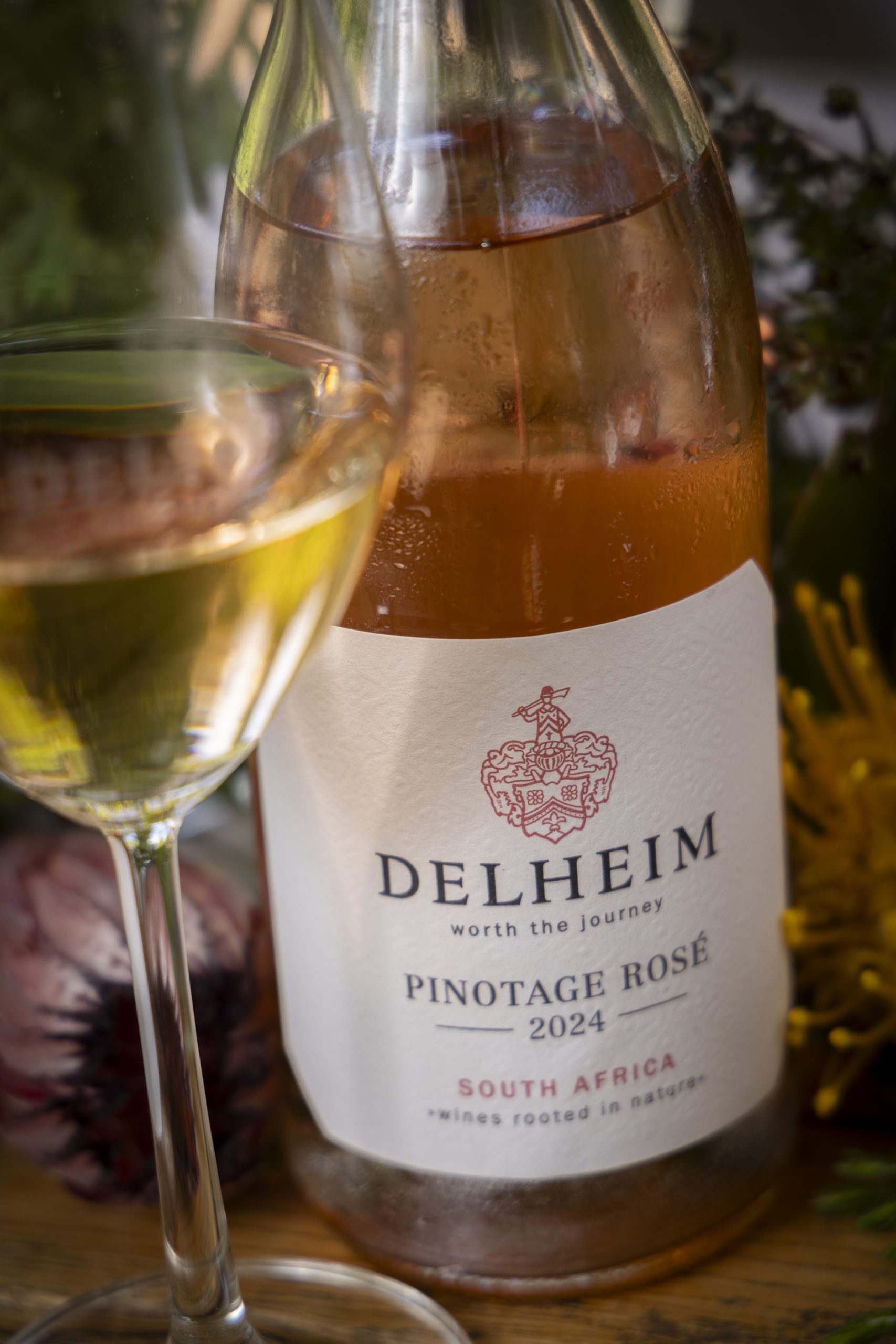
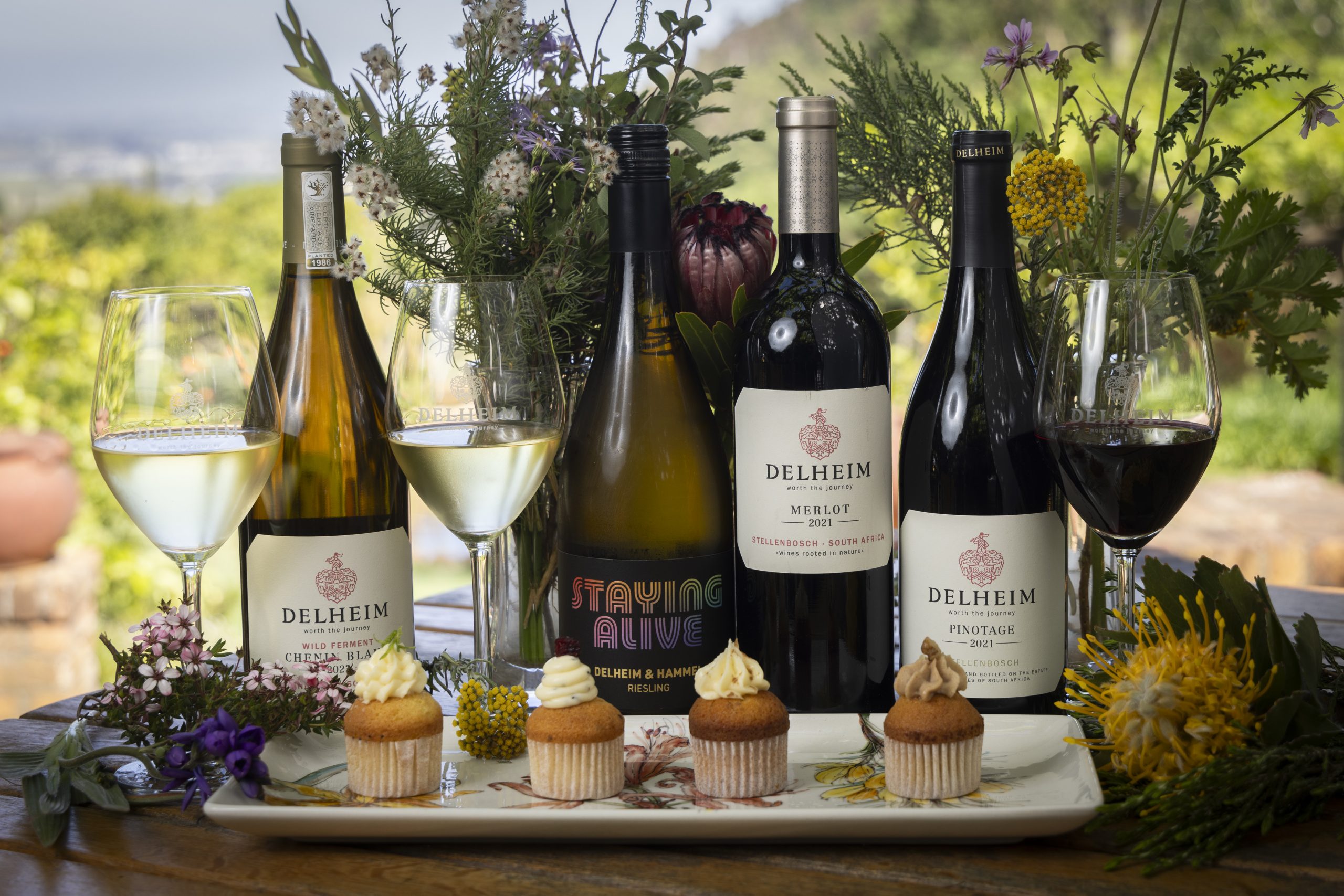
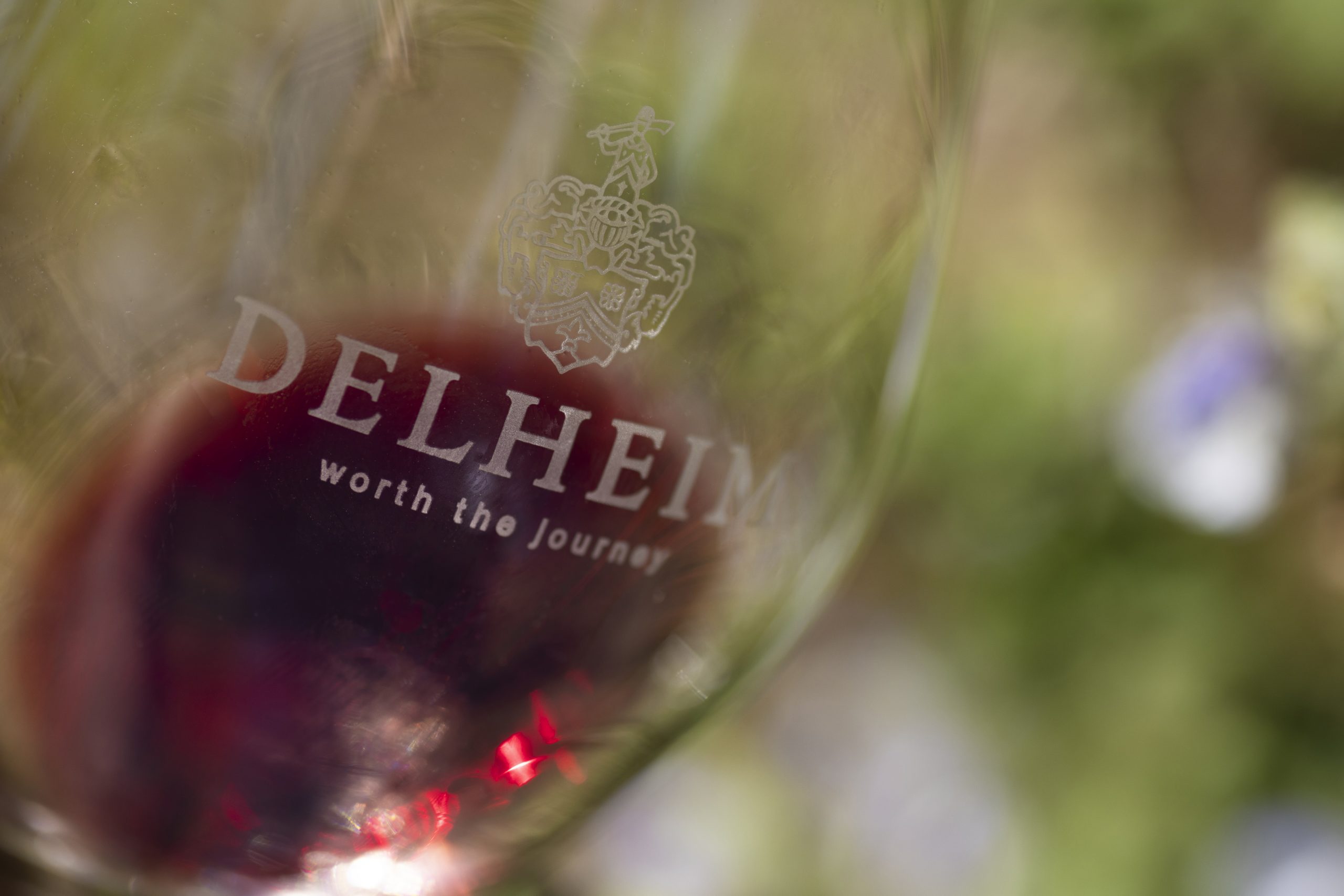
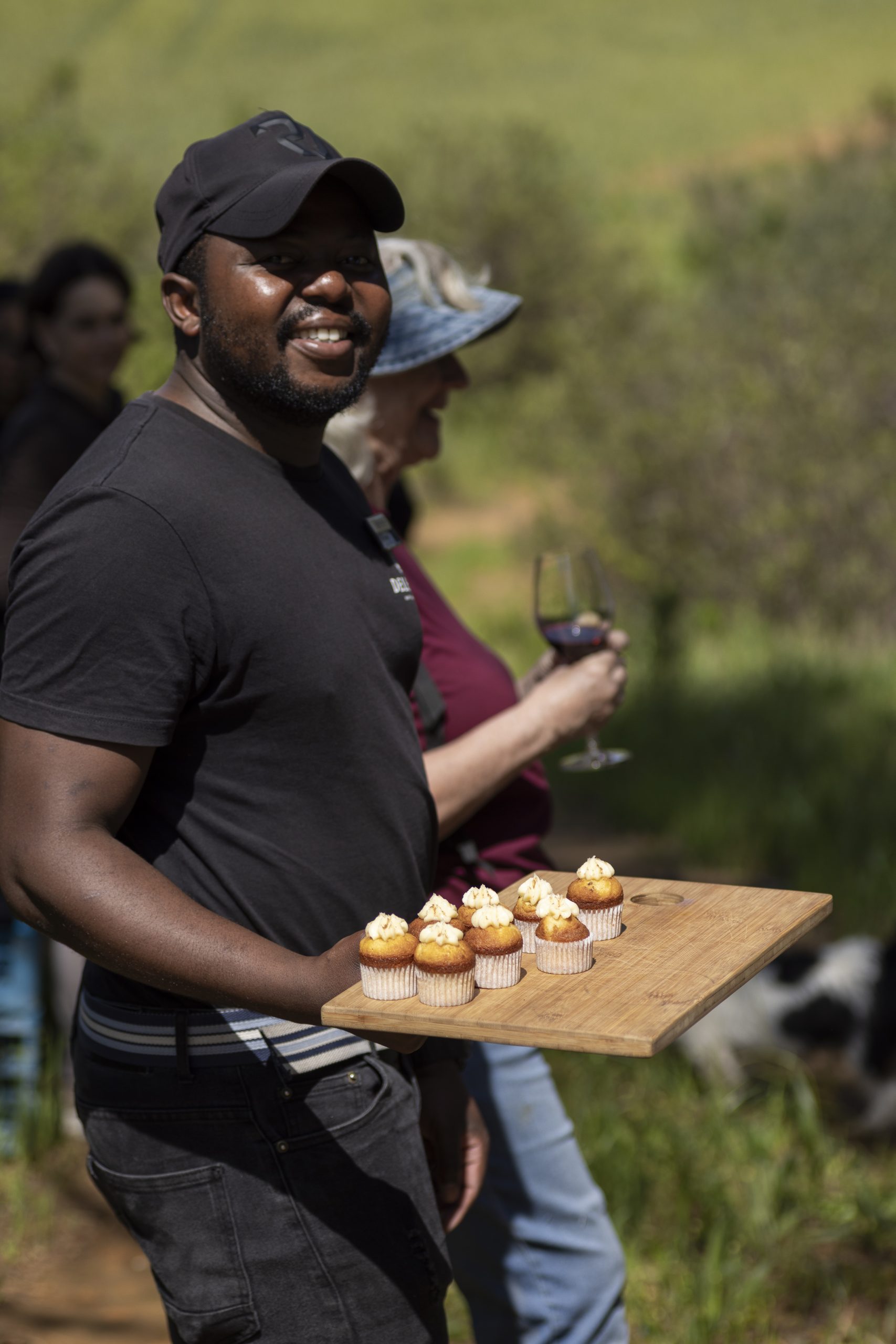
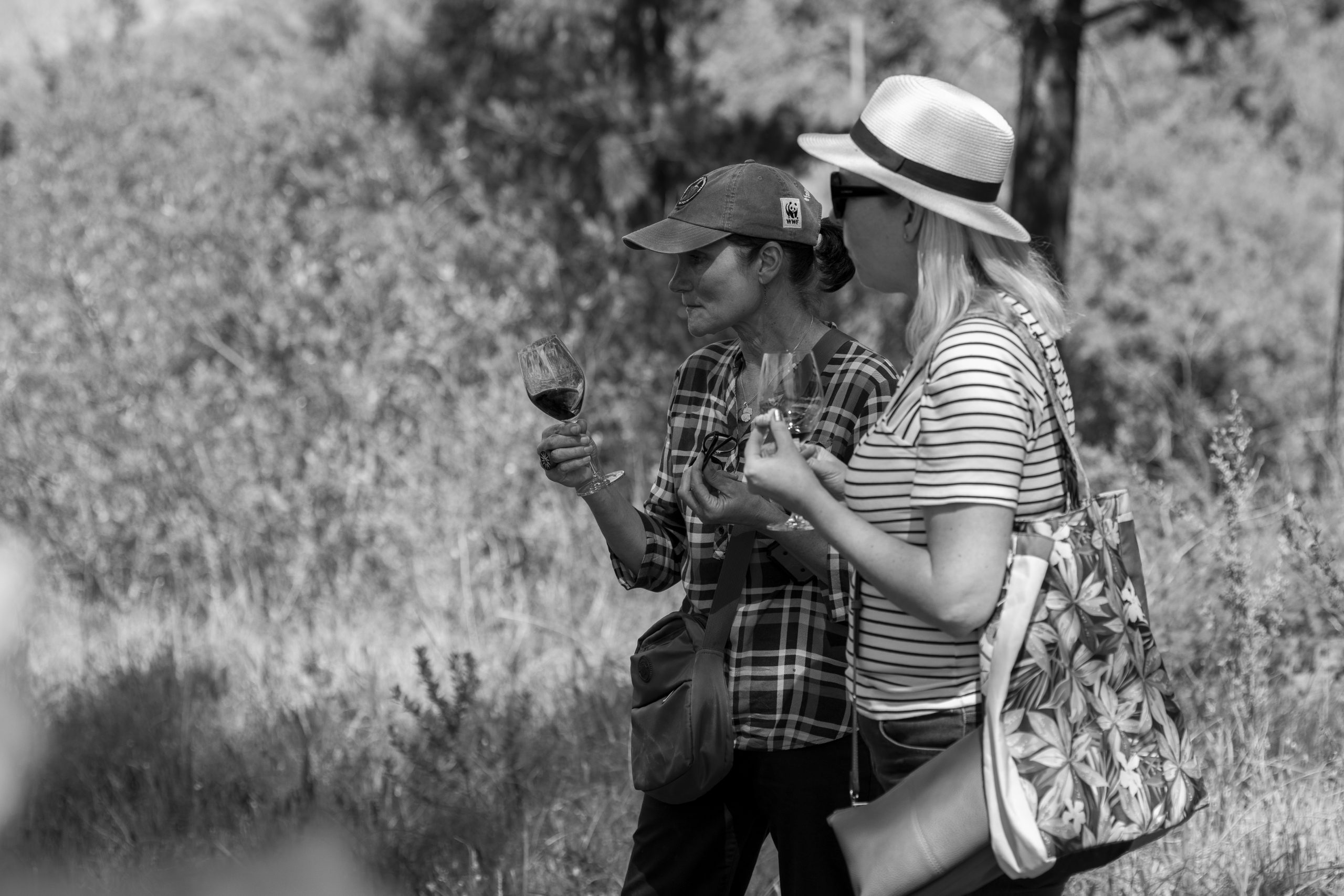
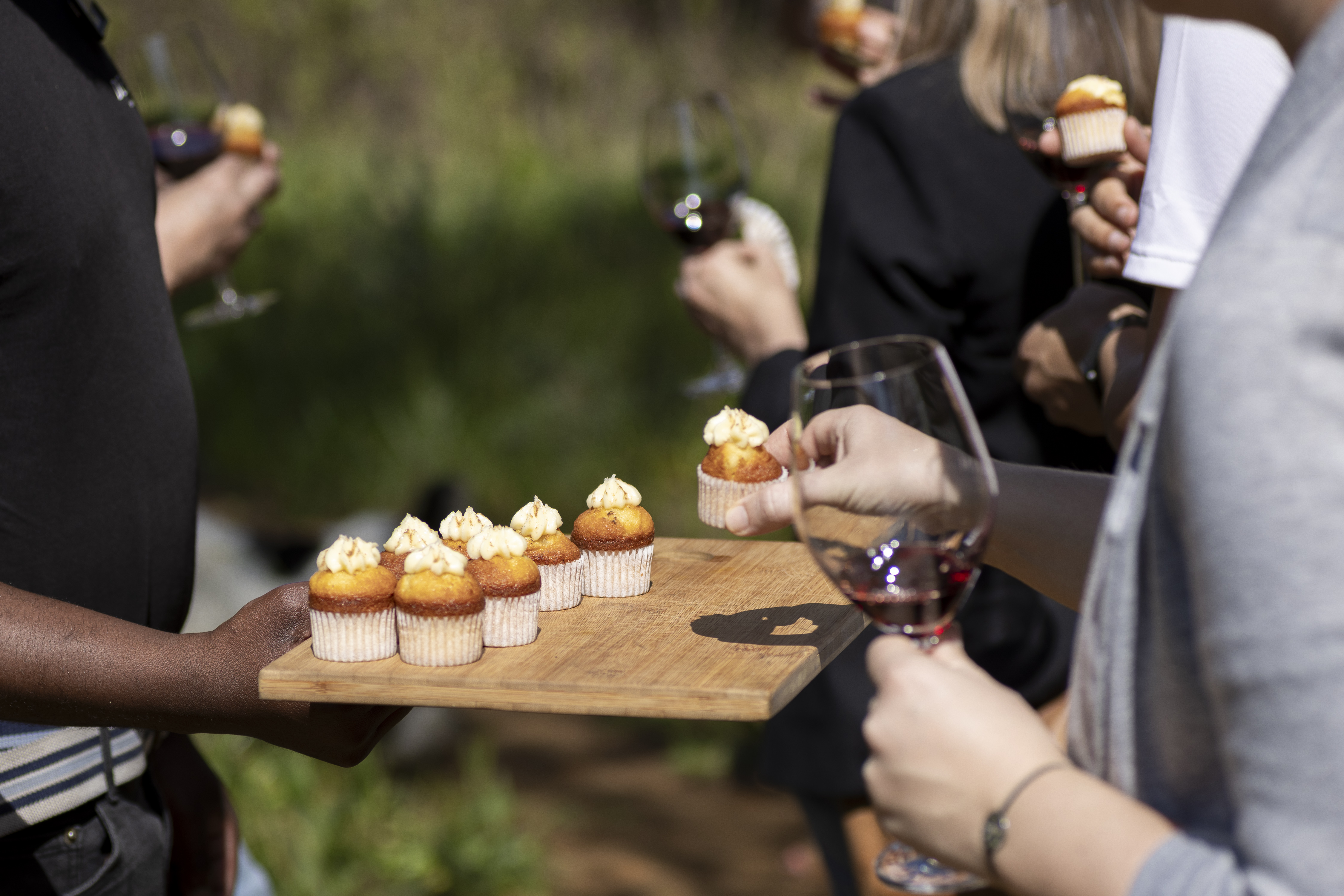
Delheim’s fynbos-inspired events include a Fynbos Cupcake and Wine Pairing, as well as a unique Delheim Fynbos Botanical Tasting, recently hosted in collaboration with Giselle Courtney, founder of Cape Town Fynbos Experience®. Guests were introduced to the aromatic flavours of edible Fynbos shrubs that can be used as seasonings, particularly those found in the renosterveld. From the wild rosemary notes of Snow Bush to the piney tones of Rhino Bush, the experience offered a sensory journey of ancient, indigenous flavours.
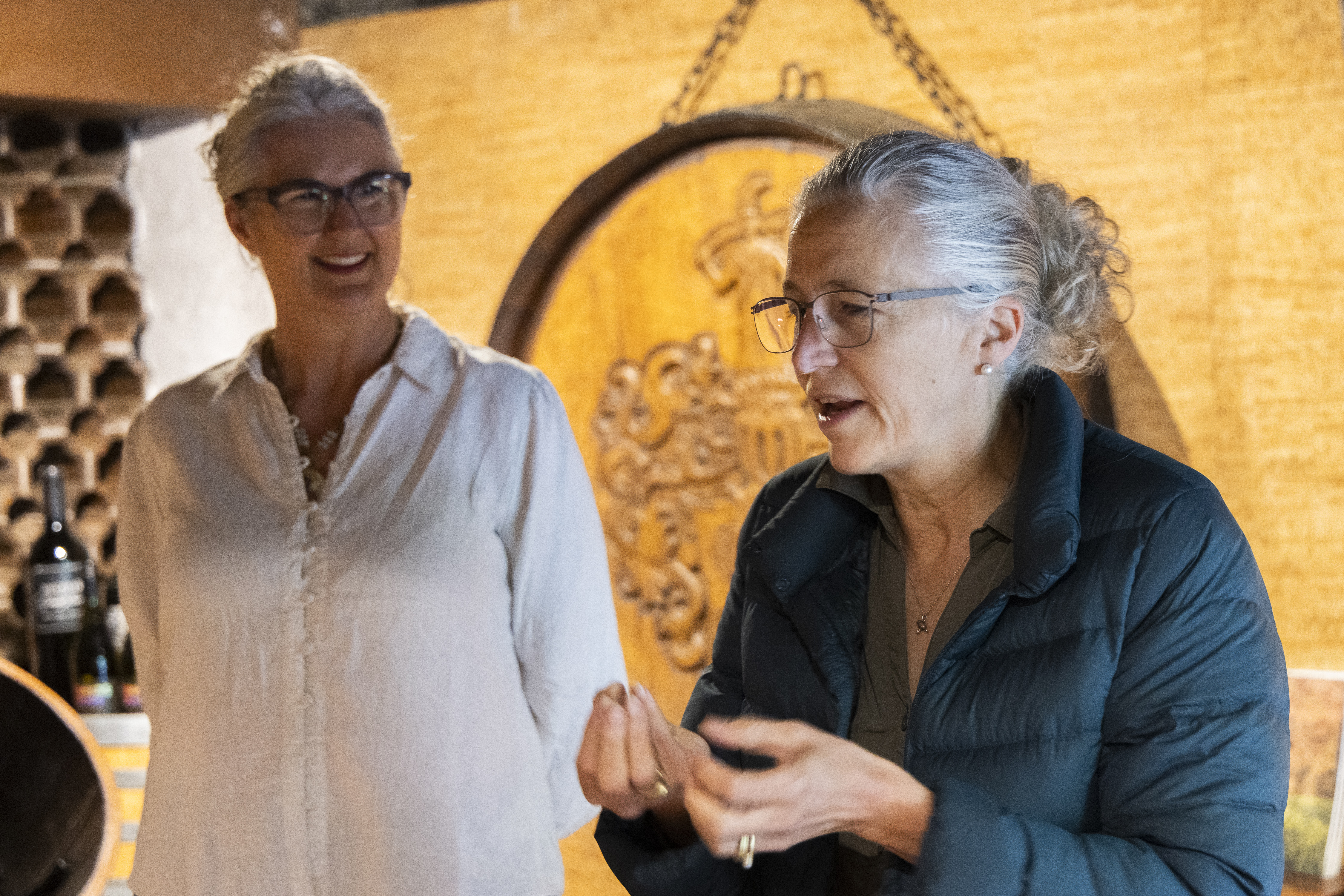
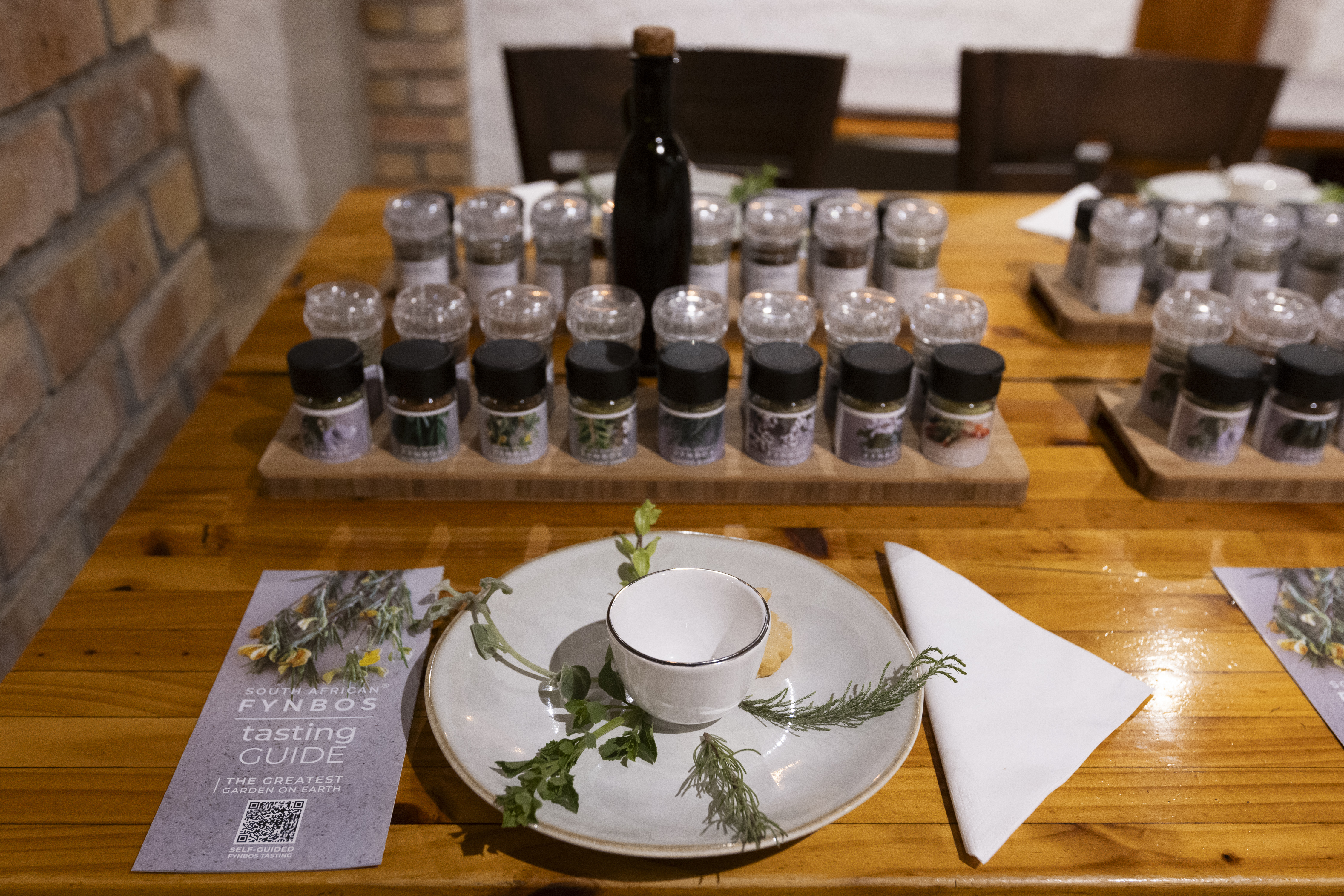
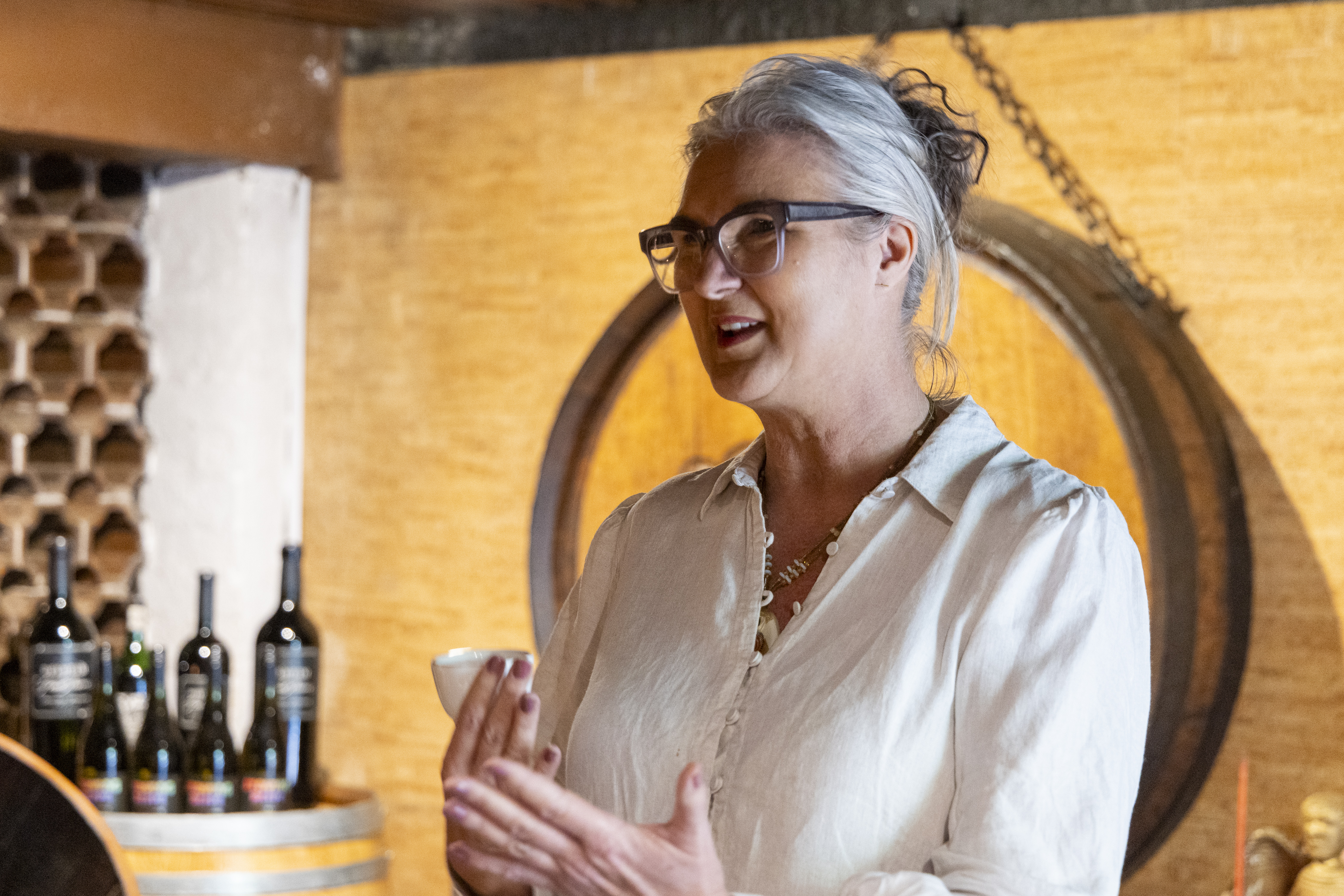
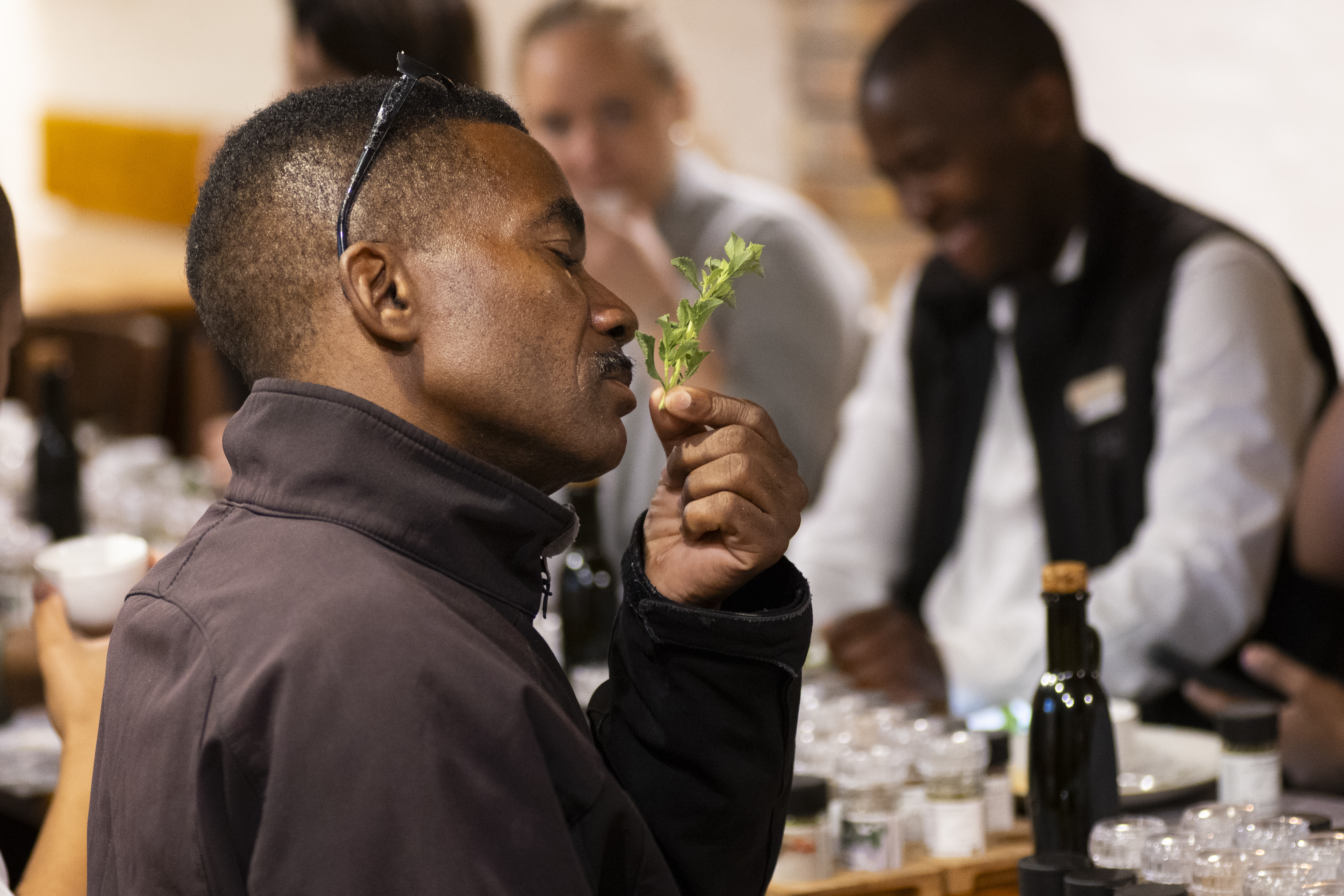
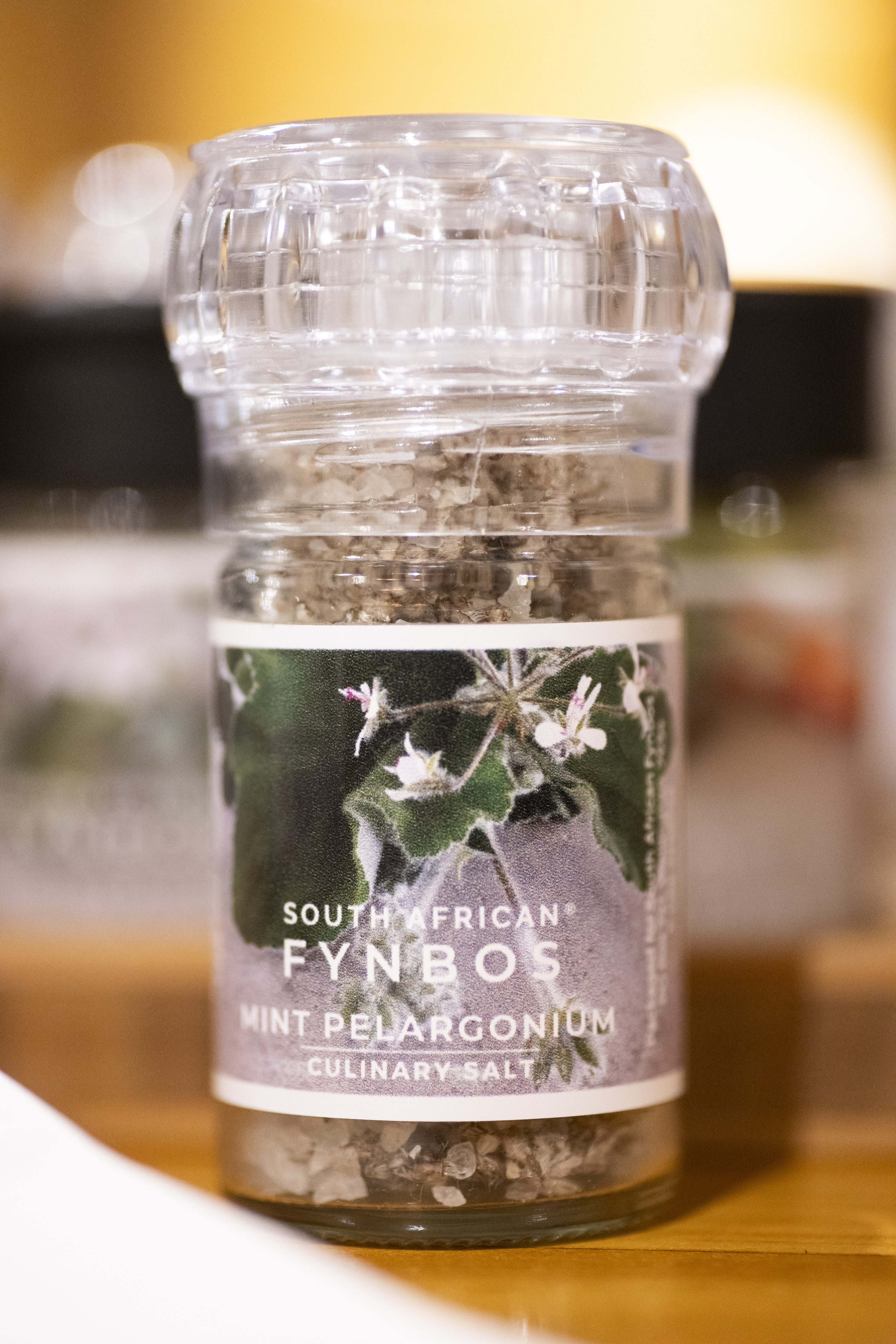
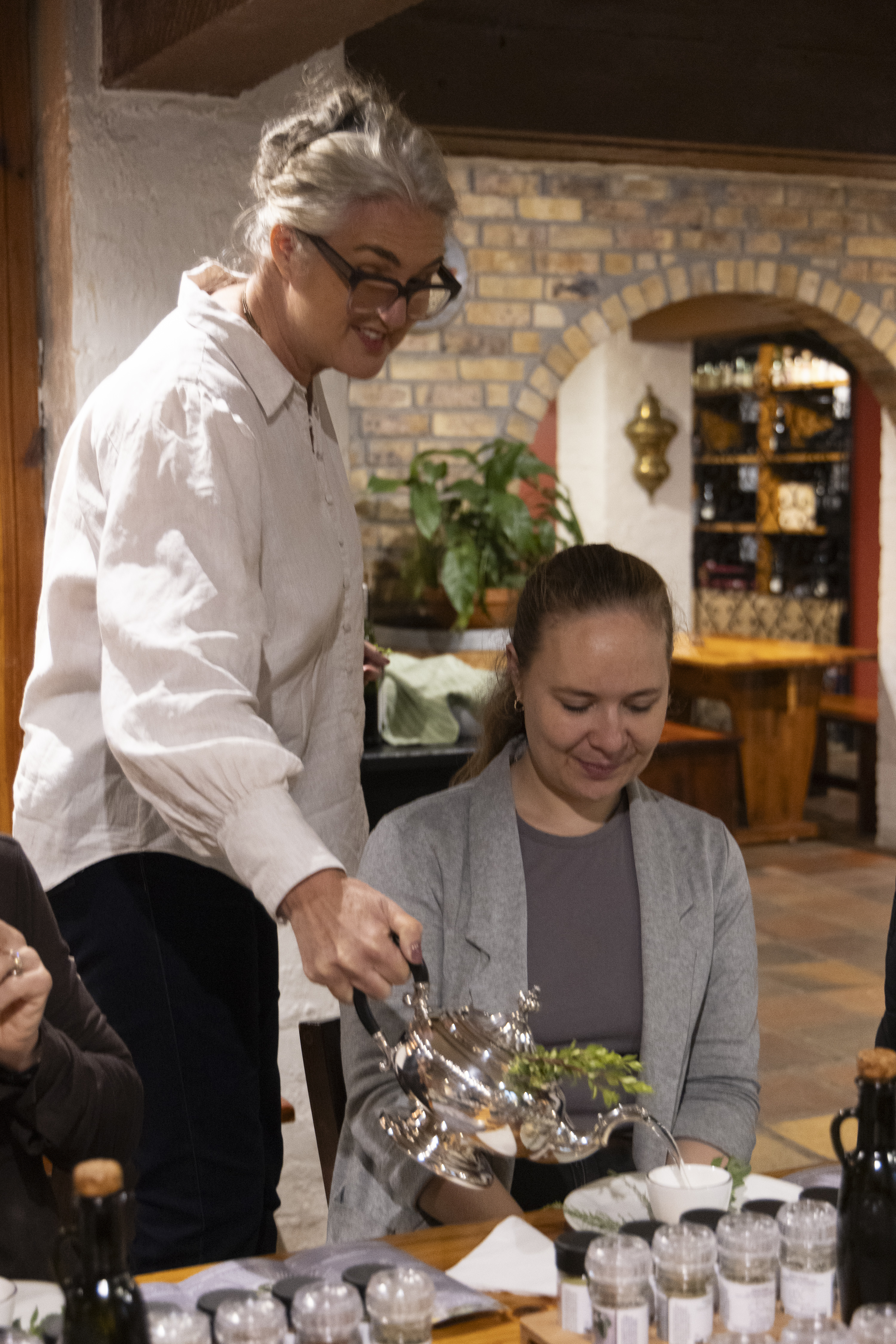
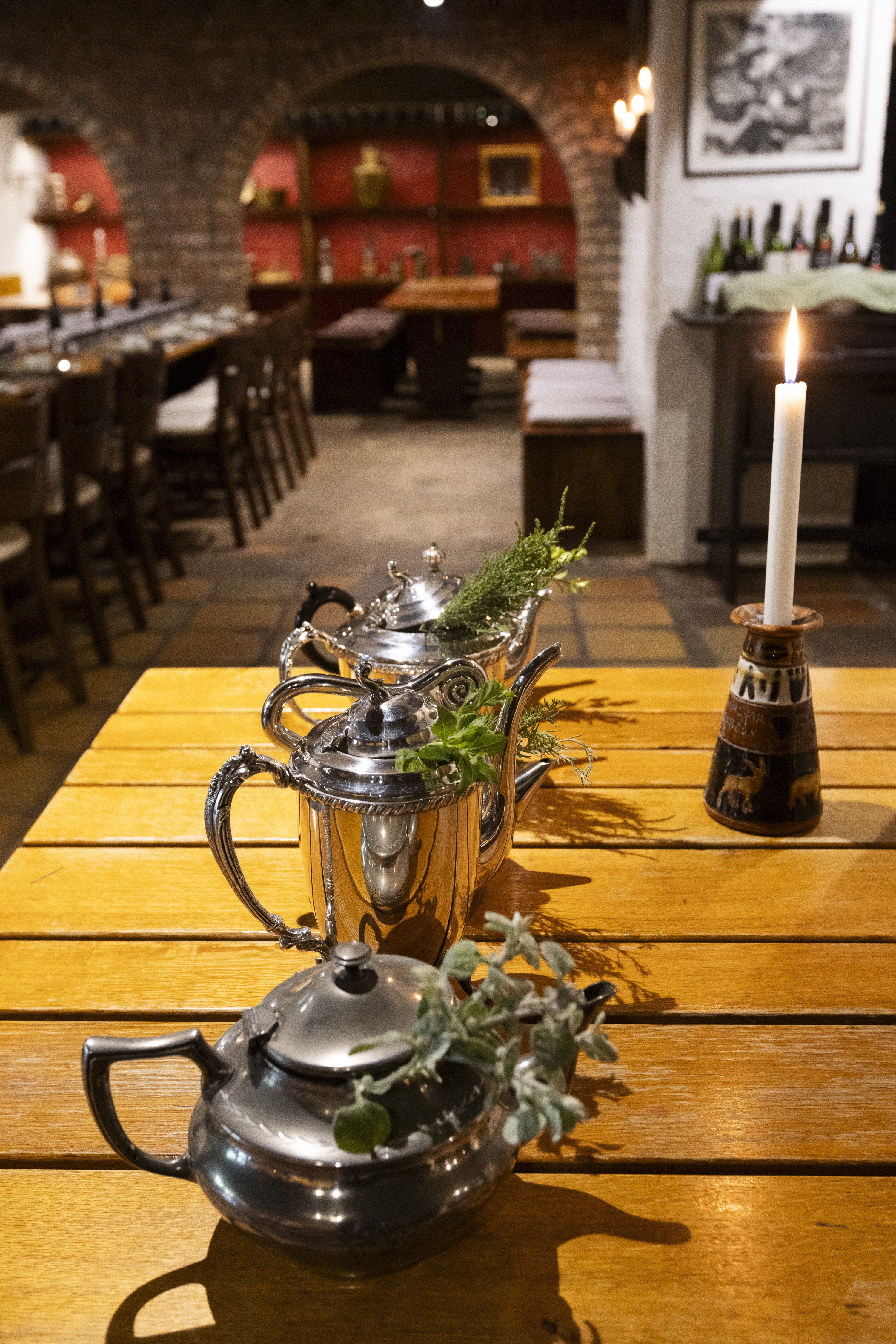
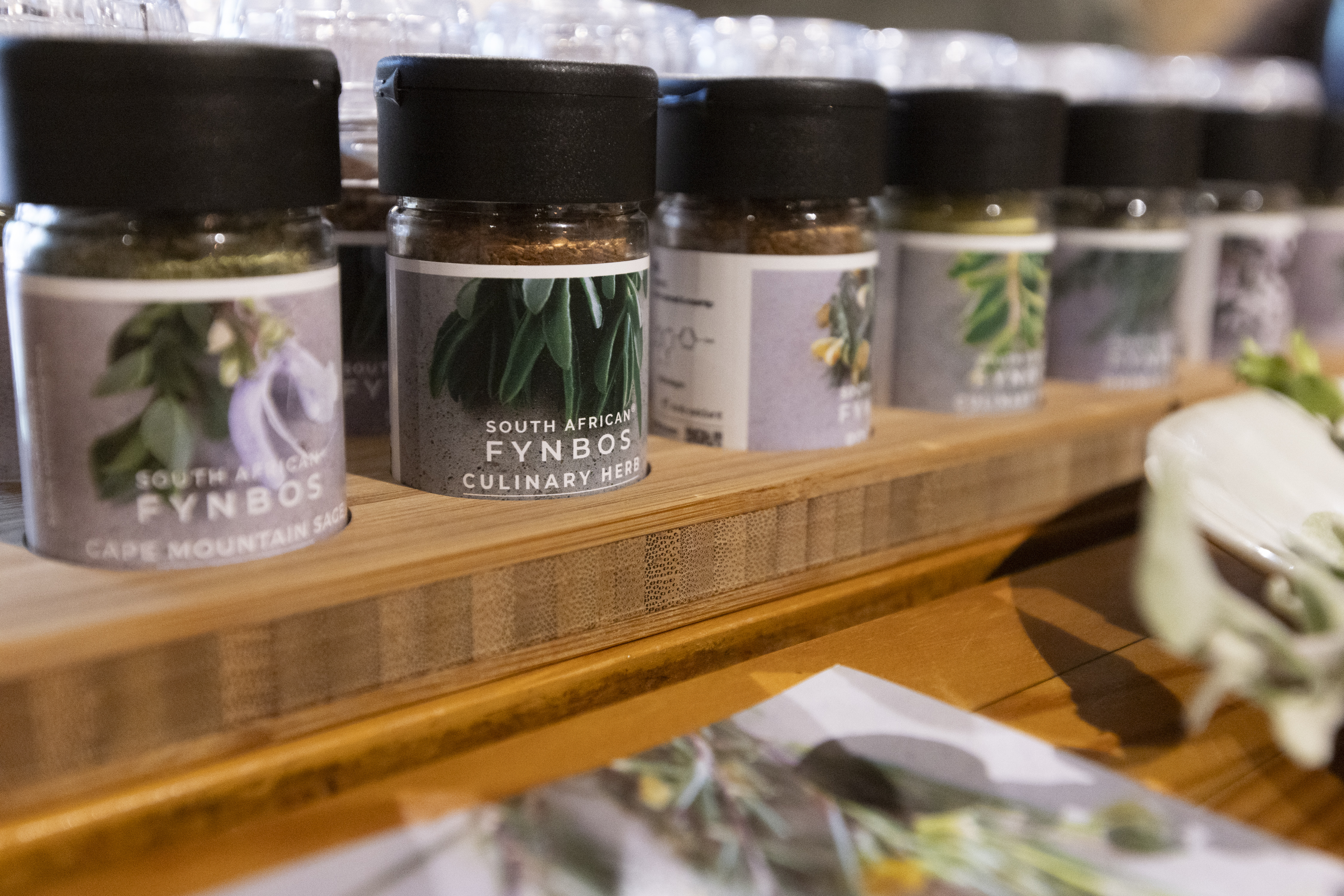
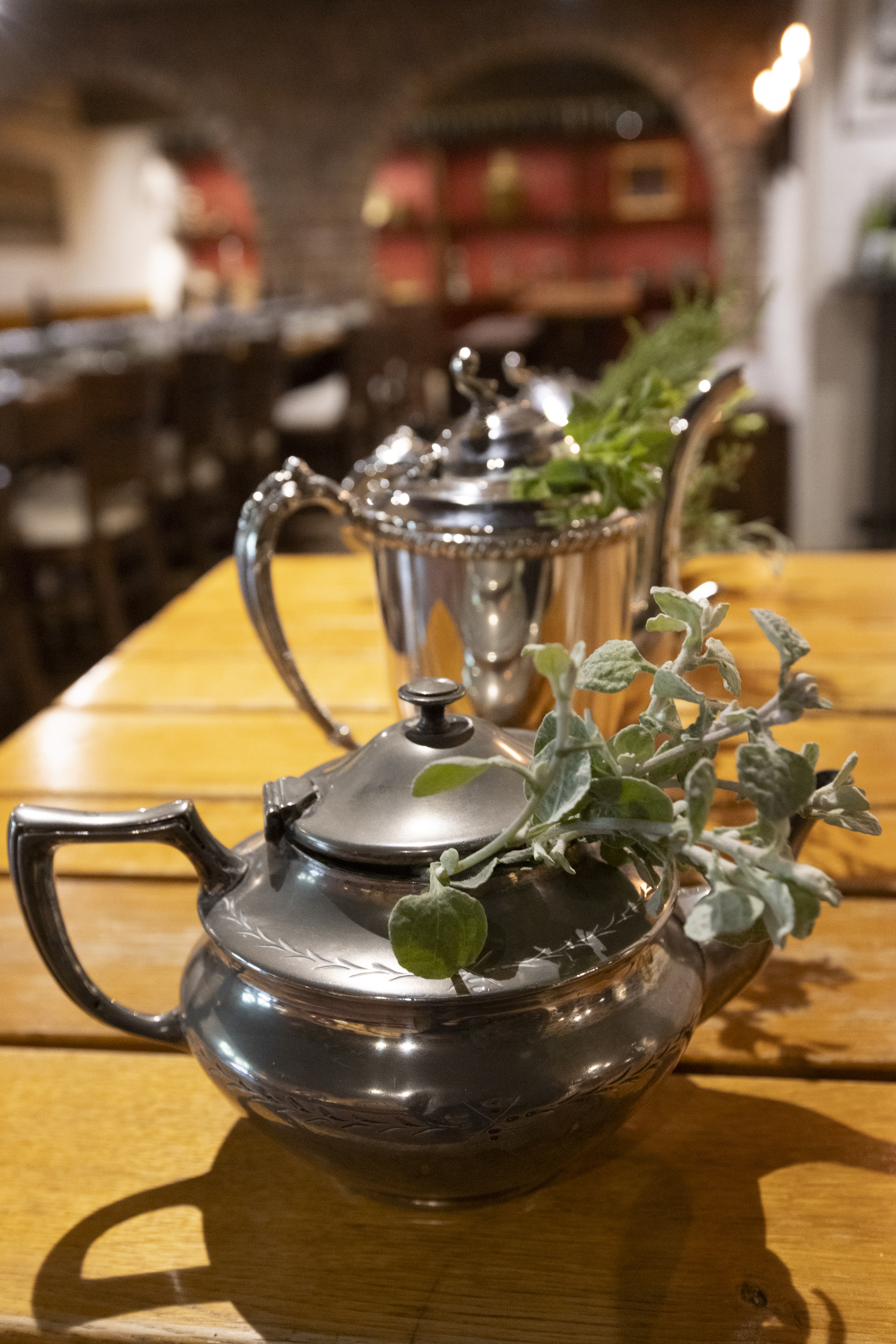
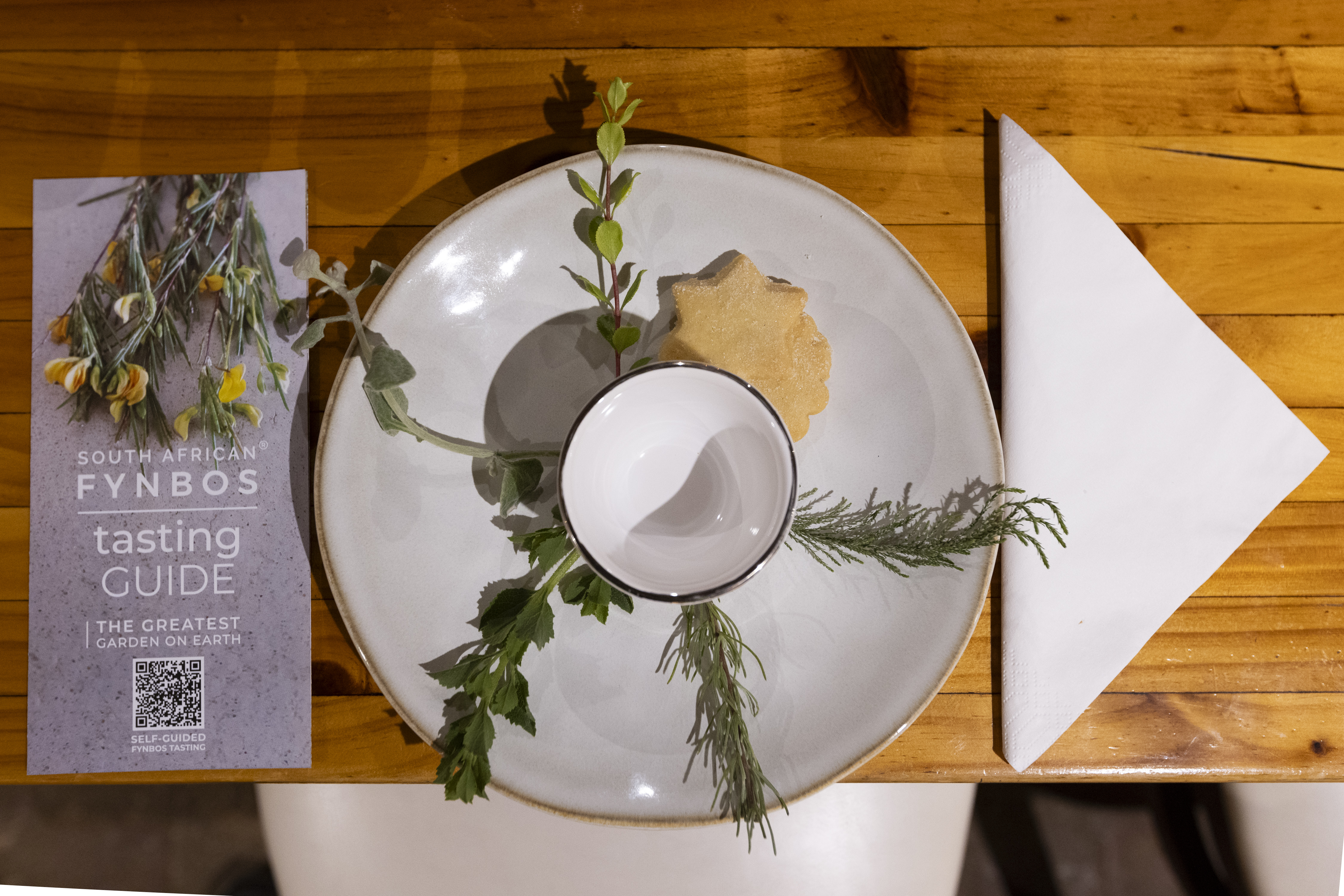
“Once you have cooked with Fynbos flavours, you can’t go back. This is a new and truly South African way of experiencing food and it is the most exquisite natural connection to our identity,” says Giselle Courtney, Cape Town Fynbos Experience®.“By developing an indigenous culinary economy with unique Fynbos flavours, we can secure the future of Fynbos through responsible use.”
Come and experience it!
“We want people to leave Delheim with a deeper appreciation for the incredible biodiversity of the Cape Floral Kingdom and the conservation initiatives at Delheim,” says Thiel. “By bringing fynbos into the vineyard and closer to our guests, we hope to inspire more people to protect our fynbos and renosterveld ecosystems for future generations.”
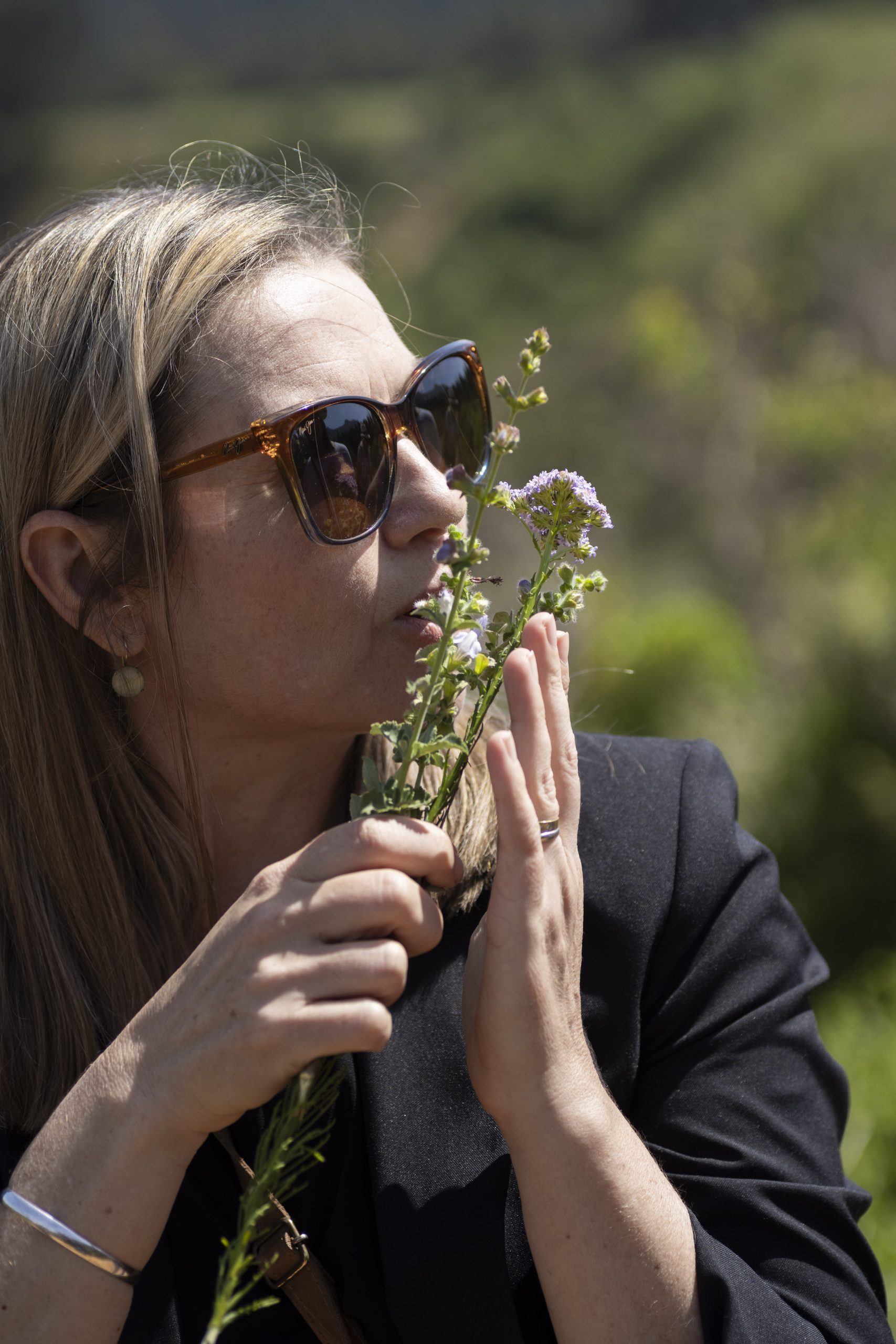
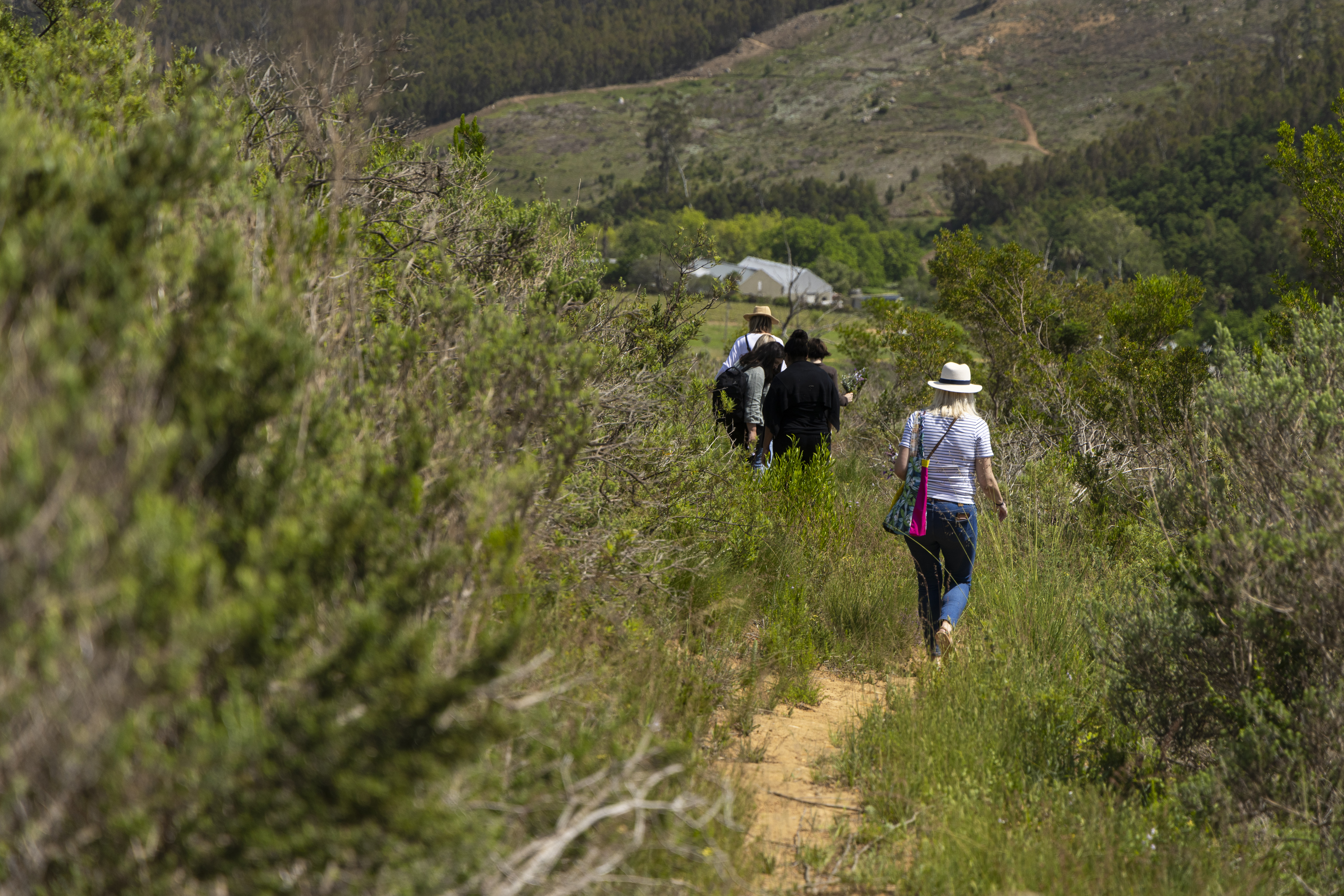
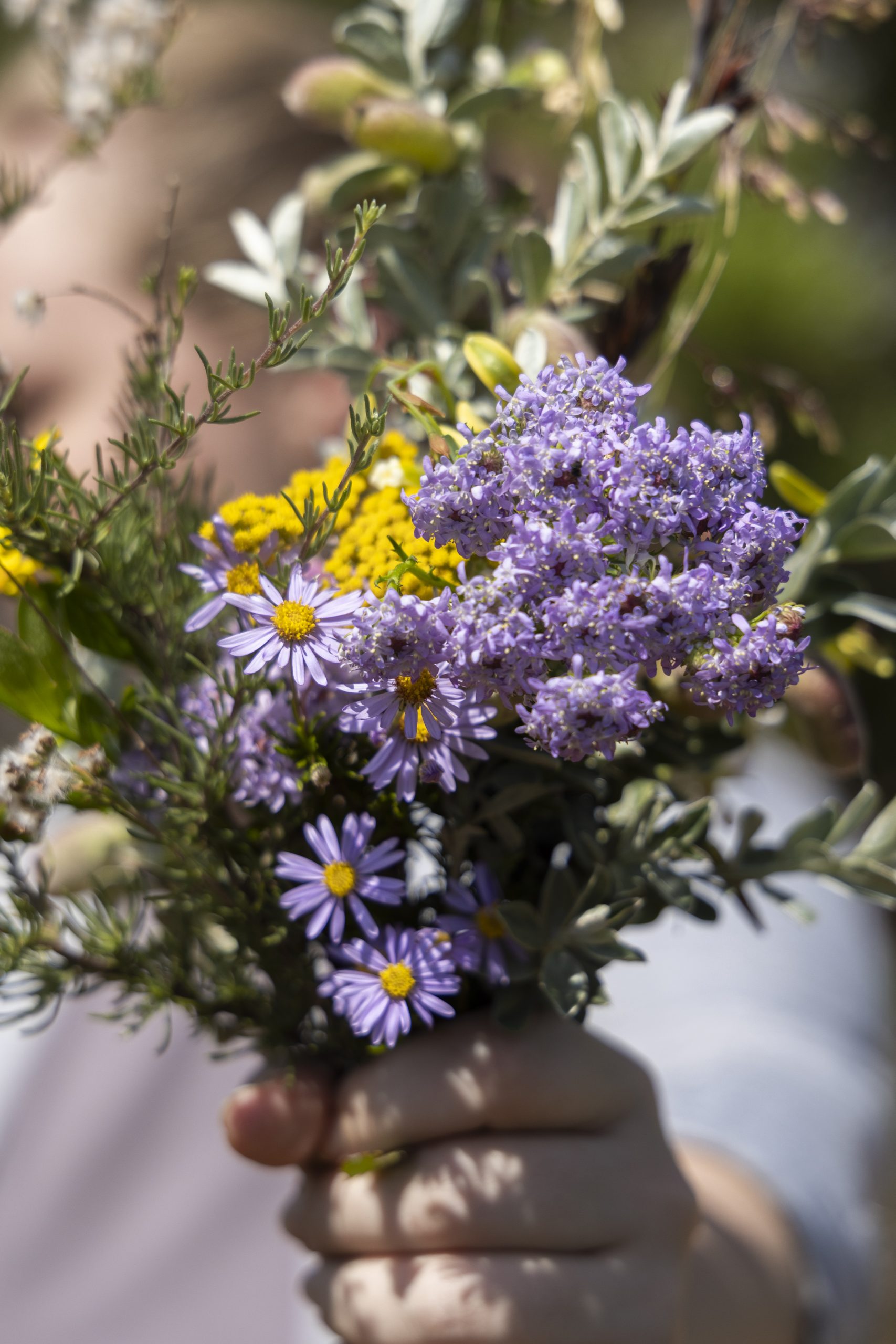
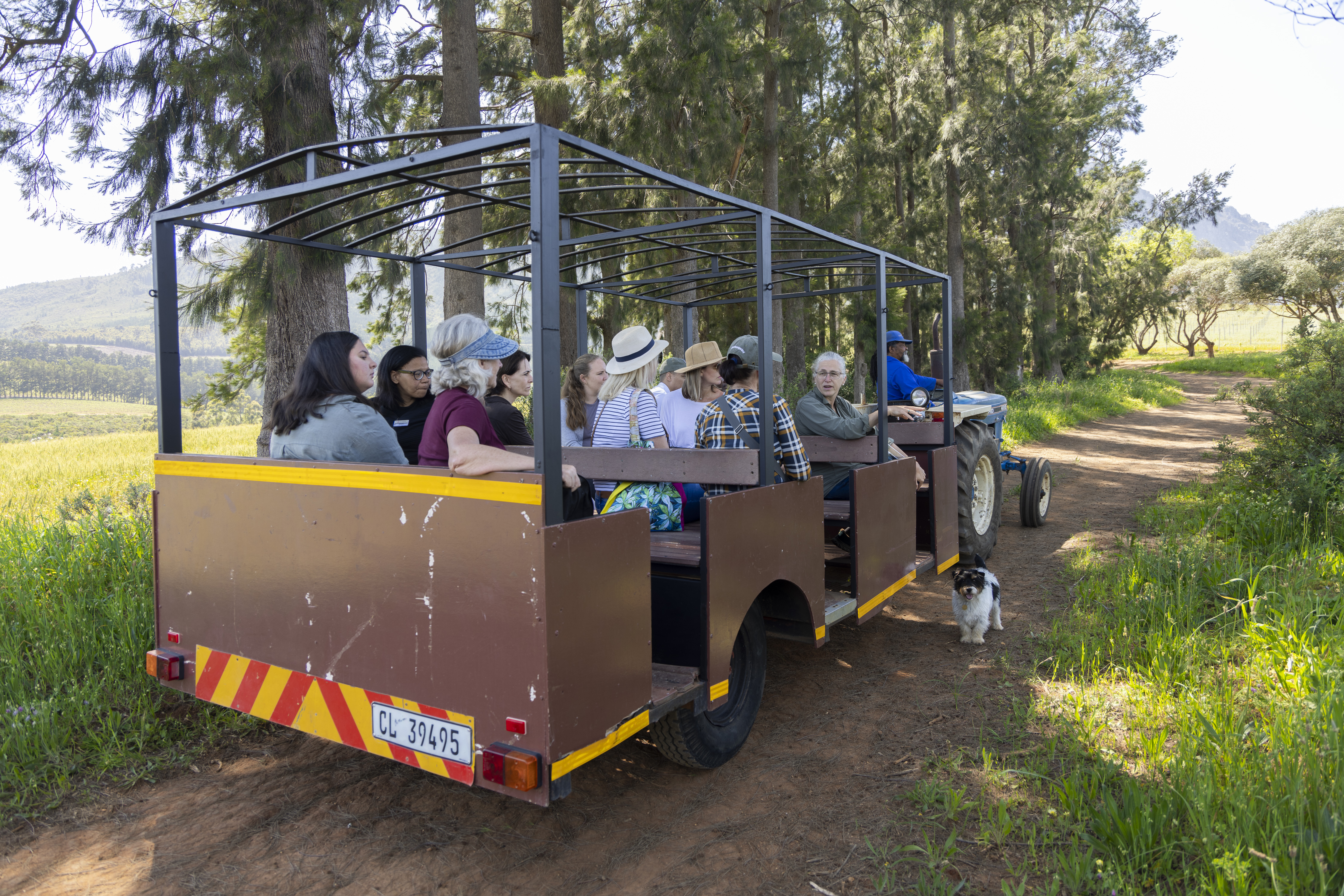
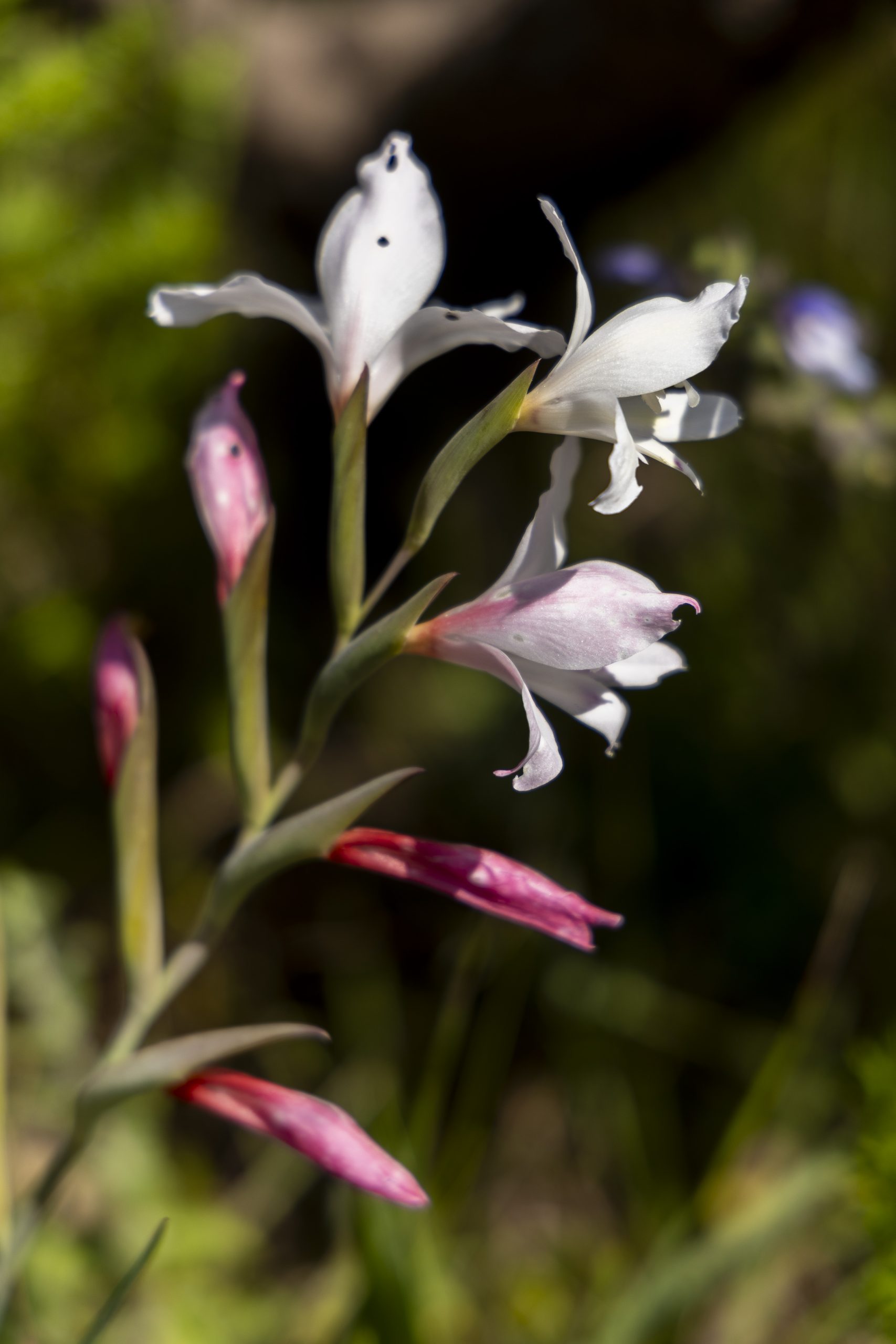
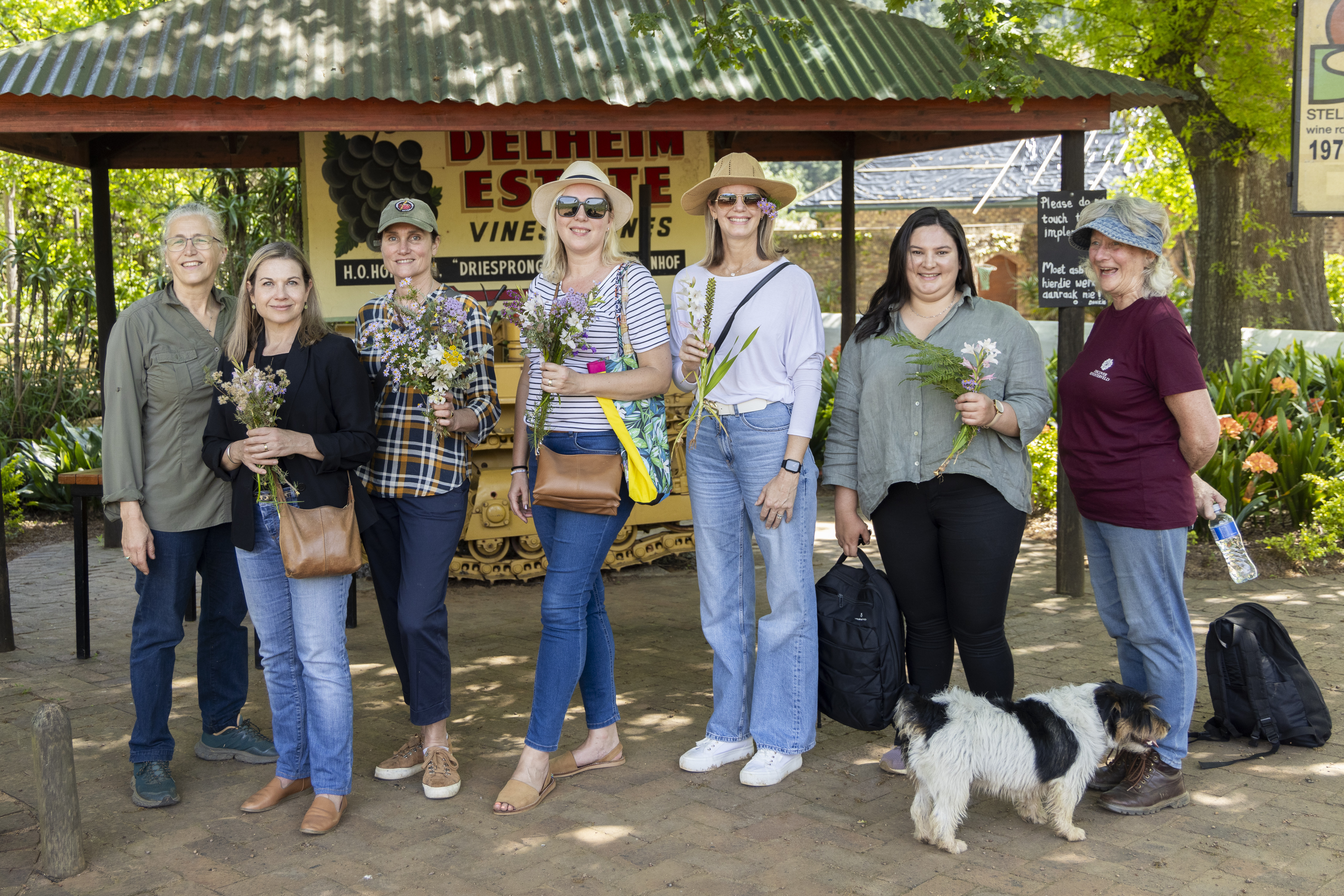
“Delheim’s efforts are vital for restoring biodiversity,” concludes Muller. “Everyone can play a part by visiting areas like Delheim that showcase these plants; learning about renosterveld; and advocating for conservation. From adding wild plants to our gardens or supporting responsible producers, small actions make a big difference.”
For more information about Delheim’s conservation efforts and nature experiences, please visit Delheim’s website.
___________________________________________________________________________
Delheim Wine & Sustainability
“Wines rooted in nature” perfectly describes Delheim Wines’ environmentally conscious viticulture of award-winning wines, founded on a commitment to conservation and sustainability spanning 70 years. A WWF Conservation Champion since 2008, Delheim dedicates 89ha of its 375ha estateto conservation, encompassing dedicated alien control management and practices that protect the abundant wildlife, creating a sanctuary for 120 indigenous plants, many classified as near threatened, vulnerable or endangered, and a 300-year-old indigenous yellowwood tree. Delheim is also a founding member of the Greater Simonsberg Conservancy, a Public Benefit non-profit organisation comprising 20 wine producers and 10 landowners. Delheim’s sustainable nature-friendly viticulture practices focus on regenerative farming; responsible pest control, natural fynbos corridors between vineyards; and effective water management practices, including efficient irrigation and wastewater recycling; and further extends to encompass employee welfare and active community engagement. Recognised with the 2024 ‘Conservation Pioneer’ award, Delheim continues to exemplify excellence in environmental and social sustainability in winemaking.
For more information:
Delheim Wines: www.delheim.com
Discover Renosterveld: www.discoverrenosterveld.co.za
WWF Conservation Champions: www.wwf.org.za/our_work/initiatives/conservation_champions
South African Fynbos: www.southafricanfynbos.com
Press release supplied by The PR Agency.
Image credits – Daniel Nel Photography







